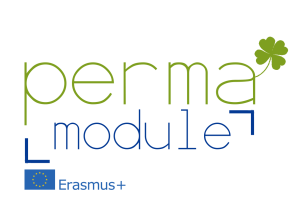
Log in to PermaModule
Is this your first time here?
For full access to this site, you first need to create an account.
English (en)
አማርኛ (am)
Afaan Oromoo (om)
Afrikaans (af)
Aragonés (an)
Aranés (oc_es)
Asturianu (ast)
Azərbaycanca (az)
Bahasa Indonesia (id)
Bahasa Melayu (ms)
Bairisch (bar)
Bamanankan (bm)
Bislama (bi)
Bosanski (bs)
Brezhoneg (br)
Català (ca_wp)
Català (ca)
Català (Valencià) (ca_valencia)
Čeština (cs)
Crnogorski (mis)
Cymraeg (cy)
Dansk (da_wp)
Dansk (da)
Dansk (kursus) (da_kursus)
Dansk Rum (da_rum)
Davvisámegiella (se)
Deutsch - Schweiz (de_ch)
Deutsch (community) (de_comm)
Deutsch (de_kids)
Deutsch (de_wp)
Deutsch (de)
Deutsch (du) (de_du)
Dolnoserbski (dsb)
Ebon (mh)
eesti (et)
English (Canada) (en_ca)
English (en_kids)
English (en_wp)
English (en)
English (pirate) (en_ar)
English (United States) (en_us_wp)
English (United States) (en_us)
English (United States) K12 (en_us_k12)
Español - Argentina (es_ar)
Español - Colombia (es_co)
Español - Internacional (es)
Español - México (es_mx_kids)
Español - México (es_mx)
Español - Venezuela (es_ve)
Español (es_wp)
Esperanto (eo)
Euskara (eu)
Èʋegbe (ee)
Filipino (fil)
Finlandssvenska (sv_fi)
Føroyskt (fo)
Français (Canada) (fr_ca)
Français (écriture inclusive) (fr_incl)
Français (fr_wp)
Français (fr)
Francais Canada – Épicène (fr_ca_epi)
Gaeilge (ga)
Gàidhlig (gd)
Galego (gl)
Gascon (oc_gsc)
Hausa (ha)
Hornjoserbsce (hsb)
Hrvatski (hr_schools)
Hrvatski (hr)
ʻŌlelo Hawaiʻi (haw)
Igbo (ig)
Interlingua (ia)
isiXhosa (xh)
isiZulu (zu)
Íslenska (is)
Italiano (it_wp)
Italiano (it)
Japanese (ja_kids)
Kalaallisut (kl)
Kichwa - Cañar Highland (qxr)
Kinyarwanda (rw)
Kiswahili (sw)
Kreyòl Ayisyen (hat)
Kurmanji (kmr)
Kvääni (fkv)
Latin (la)
Latviešu (lv_wp)
Latviešu (lv)
Lëtzebuergesch (lb)
Lietuvių (lt_wp)
Lietuvių (lt)
Lietuvių (universitetas) (lt_uni)
Luganda (lg)
Lulesamisk (smj)
magyar (hu)
Malagasy (mg)
Malti (mt)
Māori - Tainui (mi_tn)
Māori - Waikato (mi_wwow)
Māori Te Reo (mi)
Mapudungún (arn)
Mirandés (mwl)
Mongolian (mn_mong)
Nederlands (nl_ho)
Nederlands (nl_wp)
Nederlands (nl)
Norsk - bokmål (nb)
Norsk - nynorsk (nn)
Norsk (no_gr)
Norsk (no_wp)
Norsk (no)
O'zbekcha (uz)
Occitan-Lengadocian (oc_lnc)
Papiamento (pap)
Pidgin (pcm)
Polski (pl)
Polski (Workplace) (pl_wp)
Português - Brasil (pt_br_wp)
Português - Brasil (pt_br)
Português - Portugal (pt)
Português Brasil (pt_br_kids)
Português Brasil para Universidades (pt_br_uni)
Qaraqalpaq tili (kaa)
Quechua (qu)
Română (ro_wp)
Română (ro)
Romansh Sursilvan (rm_surs)
Samoan (sm)
Sanskrit (sa)
Sard (sc)
Setswana (tn)
Shqip (sq)
Sicilianu (scn)
Ślōnski (szl)
Slovenčina (sk)
Slovenščina (sl)
Soomaali (so)
Sørsamisk (sma)
Srpski (sr_lt)
Suomi (fi)
Suomi+ (fi_co)
Svenska (sv_wp)
Svenska (sv)
Tagalog (tl)
Tamil (ta)
Taqbaylit (kab)
Tetun Dili (tet)
Thai (th)
Tibetan (xct)
Tok Pisin (tpi)
Tongan (to)
Türkçe (tr)
Turkmen (tk)
Uyghur - latin (ug_lt)
VakaViti (fj)
Valencià_RACV (ca_valencia_racv)
Vietnamese (vi)
Wolof (wo)
Workplace 简体中文版 (zh_cn_wp)
Workplace 繁體中文版 (zh_tw_wp)
Workplace準拠の日本語 (ja_wp)
Yorùbá (yo)
Žemaitėškā (sgs)
Ελληνικά (el_kids)
Ελληνικά (el_wp)
Ελληνικά (el)
Ελληνικά για σχολές (el_uni)
Аԥсуа бызшәа (ab)
Башҡорт теле (ba)
Беларуская (be)
Български (bg)
Кыргызча (ky)
Қазақша (kk)
Македонски (mk)
Монгол (mn)
Русский (ru)
Српски (sr_cr)
Татар (tt)
Тоҷикӣ (tg)
Українська (uk)
ქართული (ka)
Հայերեն (hy)
עברית (he)
עברית בתי־ספר (he_kids)
עברית עבור Workplace (he_wp)
ئۇيغۇرچە (ug_ug)
اردو (ur)
العربية (ar)
بالعربي workplace (ar_wp)
دری (prs)
سنڌي (sd_ap)
سۆرانی (ckb)
فارسی (fa)
لیسي (ps)
ދިވެހި (dv)
ⵜⴰⵎⴰⵣⵉⵖⵜ (zgh)
ትግርኛ (ti)
नेपाली (ne)
मराठी (mr)
वर्कप्लेस के लिए हिंदी (hi_wp)
हिंदी (hi_kids)
हिंदी (hi)
বাংলা (bn)
ਪੰਜਾਬੀ (pan)
ગુજરાતી (gu)
ଓଡ଼ିଆ (or)
தமிழ் (ta_lk)
తెలుగు (te)
ಕನ್ನಡ (kn)
മലയാളം (ml)
සිංහල (si)
ລາວ (lo)
རྫོང་ཁ (dz)
ဗမာစာ (my)
ខ្មែរ (km)
ᐃᓄᒃᑎᑐᑦ (iu)
한국어 (ko)
日本語 (ja)
正體中文 (zh_tw)
简体中文 (zh_cn)